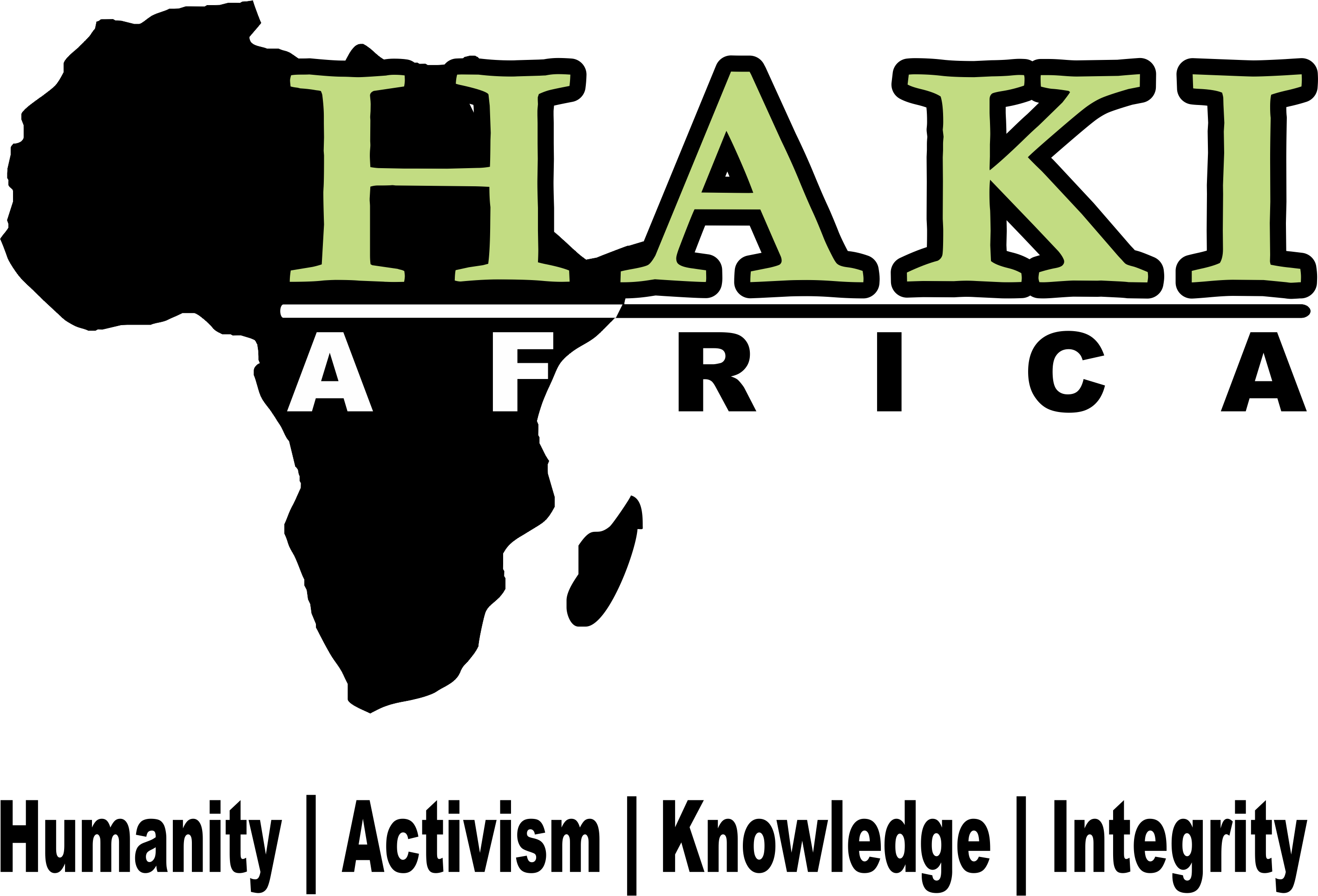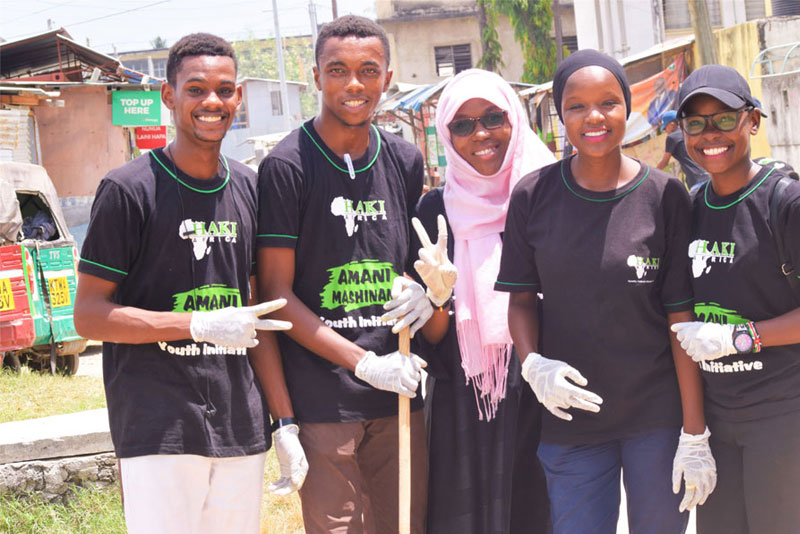HAKI Mazingira Project; Empowering Indigenous Communities for Climate Justice
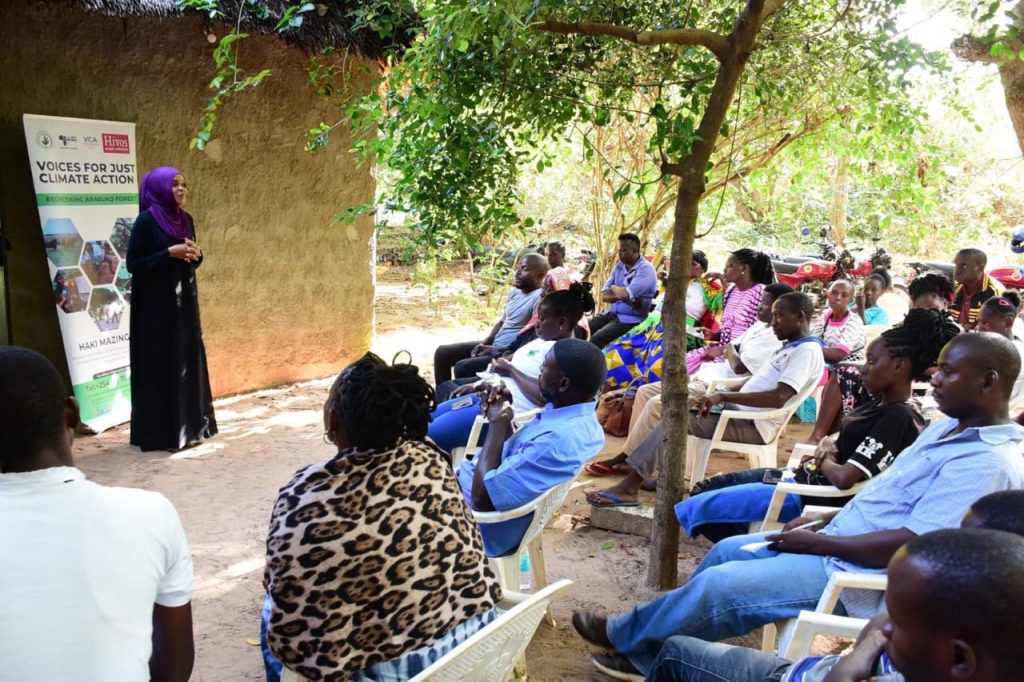
HAKI Africa, through the HAKI MAZINGIRA Project, is spearheading efforts to strengthen the capacity of indigenous communities in Kwale, Kilifi, and Lamu counties to co-create innovative and inclusive smart climate solutions. Our mission is to ensure that these communities, which are among the most vulnerable to the impacts of climate change, are empowered to lead in climate adaptation and mitigation initiatives.
Bi-Annual Meetings in Mpeketoni and Watamu: A Focus on Environmental Conservation
In our recent bi-annual meetings held in Mpeketoni and near the Arabuko-Sokoke Forest in Watamu, HAKI Africa brought together key stakeholders, including indigenous community leaders, grassroots organizations, and government representatives, to discuss the pressing environmental challenges facing these regions. These consultative meetings are integral to our strategy of fostering community-led solutions to climate change.
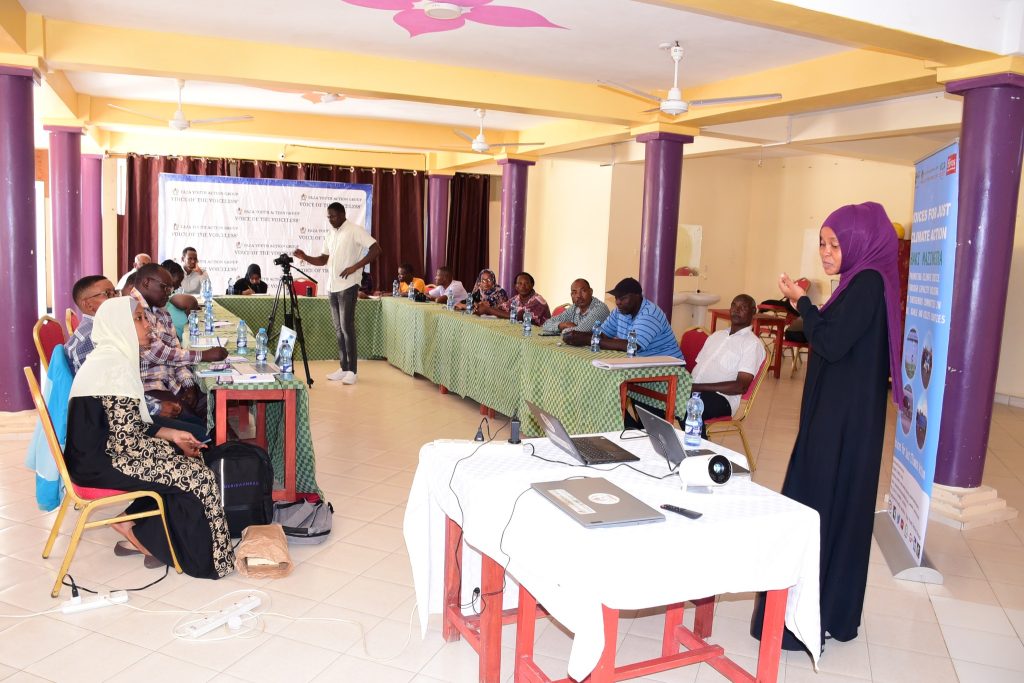
1. Mpeketoni Meeting: Addressing the Challenges of Lake Kenyatta
The Mpeketoni meeting focused on the environmental degradation of Lake Kenyatta, a crucial freshwater source in Lamu County. The lake has been shrinking due to excessive water abstraction for irrigation, unsustainable fishing practices, and encroachment for agricultural use. These activities have not only threatened the biodiversity of the area but have also led to conflicts between farmers and pastoralists over the limited resources.
During the meeting, participants discussed innovative approaches to restoring the lake’s ecosystem, including the promotion of sustainable agricultural practices, reforestation efforts, and the establishment of early warning systems for environmental degradation. The involvement of local communities, particularly the youth, in these initiatives was emphasized as a critical factor for success.
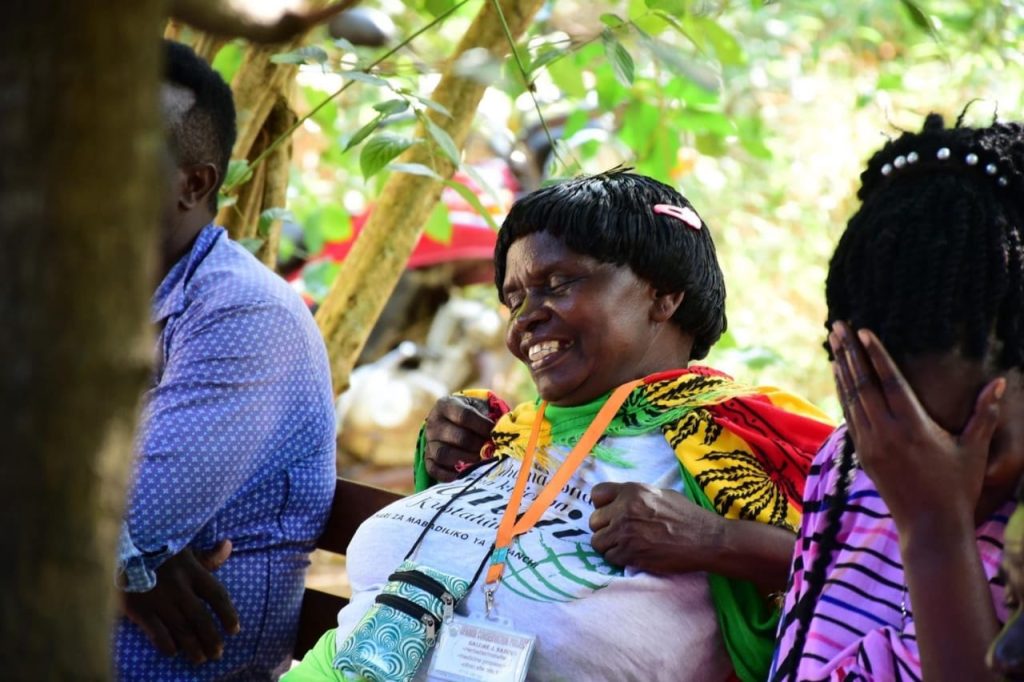
2. Watamu Meeting: Protecting the Arabuko-Sokoke Forest
The Arabuko-Sokoke Forest, the largest remaining coastal forest in East Africa, faces significant threats from encroachment as local communities seek land for settlement and livelihoods. In the Watamu meeting, HAKI Africa, in partnership with the Malindi Community Human Rights Centre, engaged with local community leaders and government officials to develop strategies for the forest’s conservation.
Discussions centered on the importance of preserving the forest’s biodiversity and the role it plays in mitigating climate change. The meeting highlighted the need for stronger enforcement of environmental laws and the promotion of alternative livelihoods that do not depend on deforestation. By empowering the indigenous communities living around the forest, we aim to create a sustainable model for environmental conservation that can be replicated in other regions.
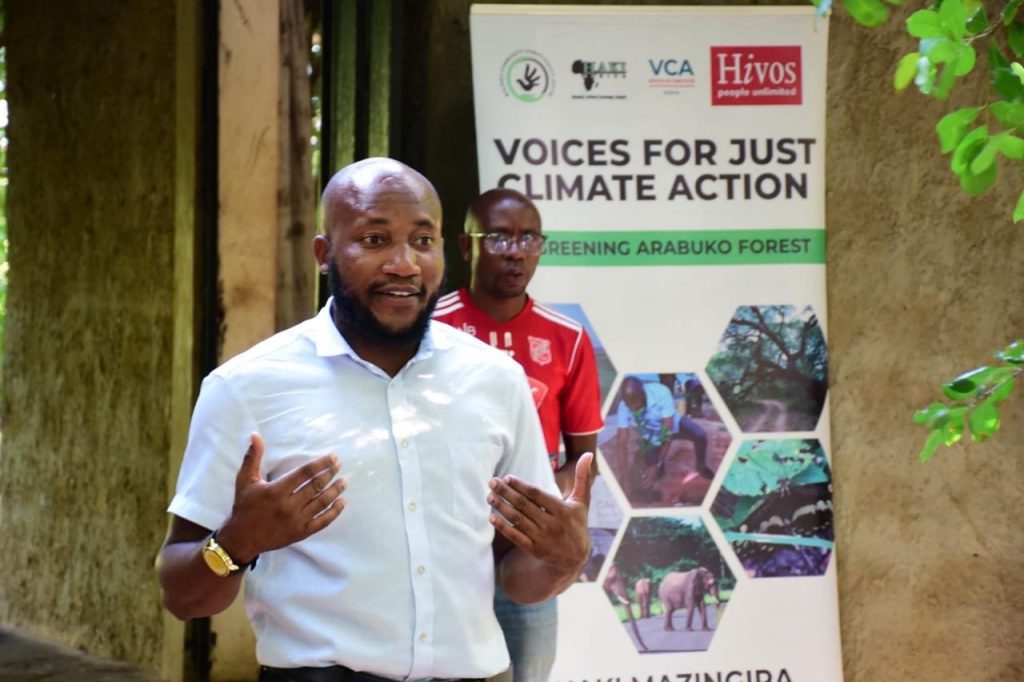
Partnerships and Collaboration: A Unified Approach to Climate Justice
HAKI Africa’s approach to climate justice is rooted in collaboration. Through the HAKI MAZINGIRA Project, we are partnering with the Pemba Community, the Malindi Community Human Rights Centre, and the Faza Youth Action Group, among others, to mobilize and manage stakeholders in climate change activities across the coastal region.
Our partners play a key role in mobilizing communities, planning and executing project activities, and reporting on progress. This collaborative effort ensures that the voices of indigenous communities are heard and that they are active participants in shaping the future of their environment.
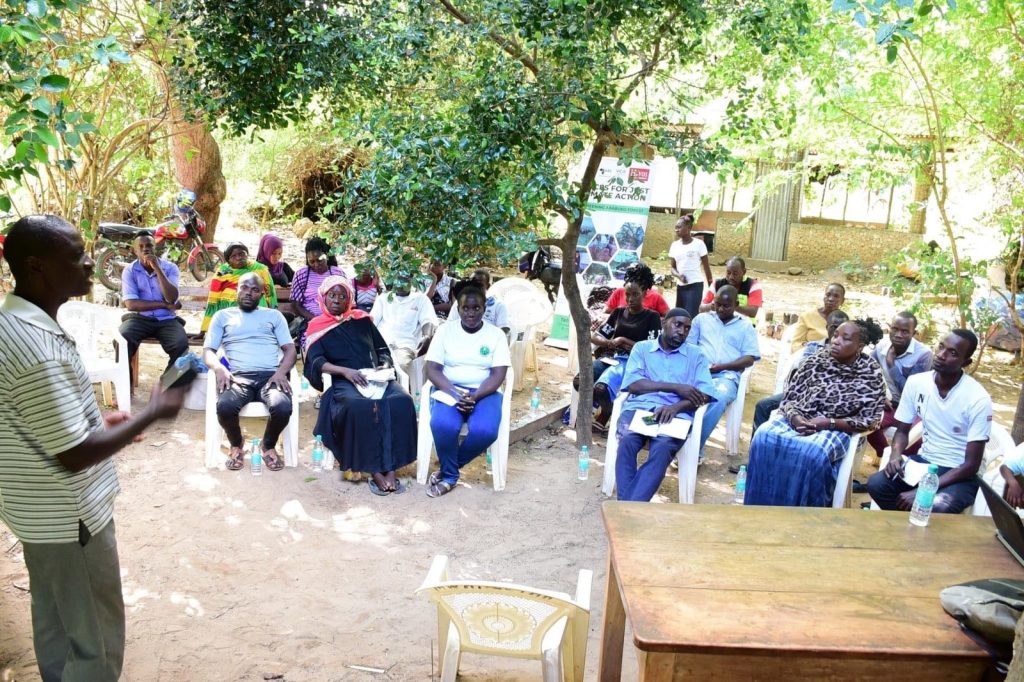
Artivism: Building a Movement of Climate Change Champions
One of the unique aspects of the HAKI MAZINGIRA Project is the use of artivism—artistic activism—to build a movement of climate change champions. In Kilifi County, we are organizing a Smart Climate Justice Cultural Festival, where youth and women climate justice champions will showcase their artistic performances and fine arts centered on smart climate justice themes. This festival is designed to raise awareness, inspire action, and create a platform for dialogue between the community and policymakers.
Lobbying for Policy Change: Ensuring Indigenous Voices are Heard
The project also focuses on lobbying both county and national governments to integrate climate change mitigation strategies into their annual development plans and budgets. Through bi-annual courtesy and consultative visits to strategic ministries, departments, and agencies (MDAs), we are advocating for the inclusion of indigenous communities in the decision-making processes that affect their lives.
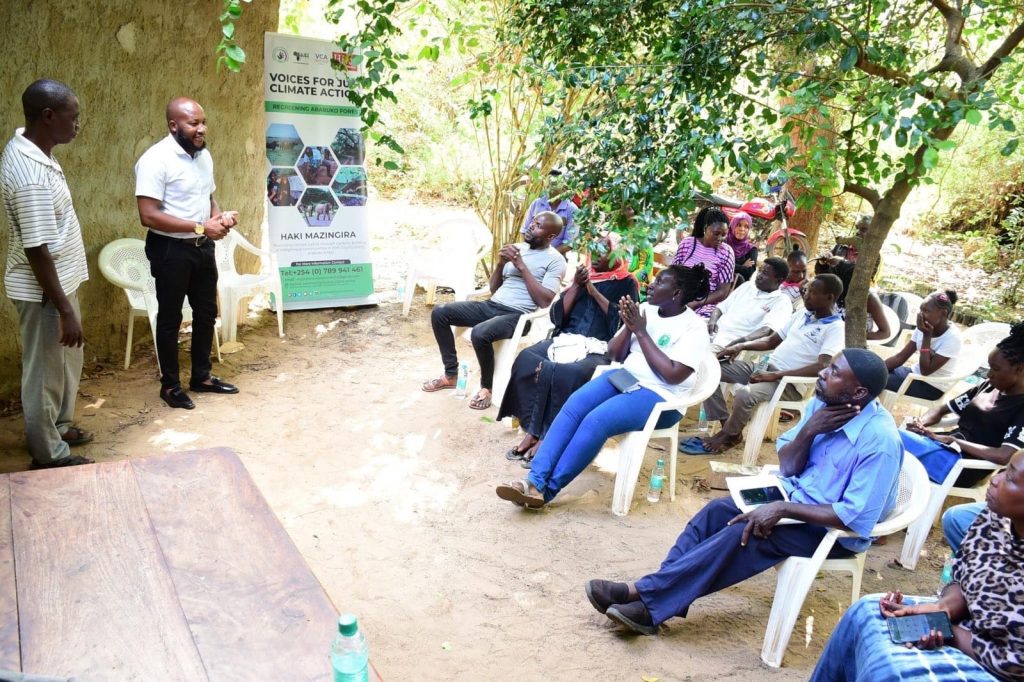
Looking Ahead: A Sustainable Future for Coastal Communities
The HAKI MAZINGIRA Project is more than just a series of activities; it is a movement towards sustainable development and environmental justice for the indigenous communities of Kenya’s coastal region. By strengthening the capacities of these communities, building a strong network of climate change champions, and lobbying for policy change, HAKI Africa is committed to ensuring that these communities are not only resilient in the face of climate change but are also leaders in the global movement for environmental justice.
Join us in this journey as we work together to protect our environment, empower our communities, and secure a sustainable future for all.

